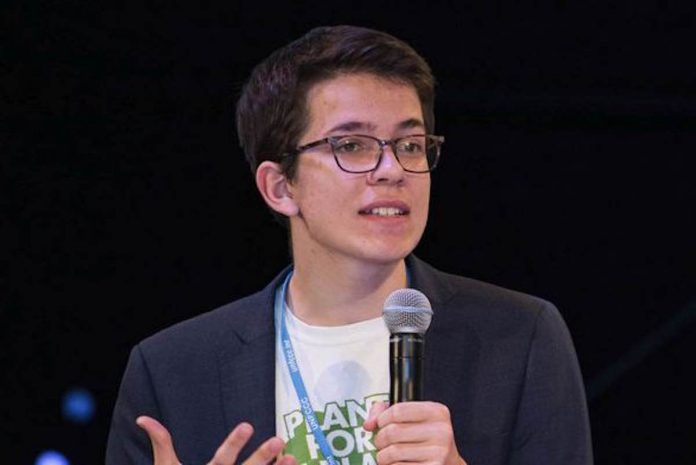
19 year old on A Mission To Plant A Trillion Trees to Save the Environment
Date:

Share post:
Felix planted his first tree two months after completing his class presentation on trees, which outlined the one million tree mission. His tale went viral, and he quickly found himself speaking in front of the European Parliament and attending conferences worldwide.
“We children understand that adults are aware of the issues and are aware of the solutions,” he remarked. “We’re not sure why there’s so little activity.”

According to him, the kids came up with three probable explanations for the lapse. One example is different interpretations of the term “future.”
According to him, the kids came up with three probable explanations for the lapse. One example is different interpretations of the term “future.”
Climate change denial is another possibility. The third possibility can be seen in an animal narrative about monkeys, which made a particularly sharp point in the way that only a kid can.
“If you give a monkey the option of having one banana right now or six bananas later, the monkey will always choose the one banana right now,” he explained. “As a result of this, we children realised we couldn’t rely on grownups to safeguard our future.” To accomplish so, we must take control of our destiny.”
Finkbeiner was four years into pioneering a spectacular environmental cause that has evolved into a worldwide network of children activists seeking to reduce global warming by replanting the planet at the time of his speech.
Finkbeiner is now 19 years old, and Plant-for-the-Planet, the environmental organisation he started, has planted more than 14 billion trees in more than 130 countries, collaborating with the UN’s Billion Tree campaign. The organisation has also increased the tree-planting target to one trillion trees, or 150 trees for every human being on earth.

Those trees might capture an additional 10 billion tonnes of carbon dioxide per year, according to Finkbeiner, giving the world more time to get serious about lowering carbon output.
The organisation also generated the world’s first full-scale scientific global tree census, which is now assisting NASA in studying forests’ ability to store carbon dioxide and their potential to safeguard the planet better. More than almost any other campaigner, Finkbeiner has done more to get young people into the climate change fight. Plant-for-the-Planet today has a 55,000-strong army of “climate justice ambassadors” who have been trained in one-day courses to become environmentalists in their localities. They are mainly between the ages of nine and twelve.
Plant-for-the-Planet was inspired by fourth-grade school work in Finkbeiner’s homeland of Uffing am Staffelsee, which is located south of Munich. Climate change was the subject of discussion. In his nine-year-old mind, that spelled peril for his favourite animal, the polar bear. For his research, he used Google. Google sent him somewhere else—to articles of Wangari Maathai, a Kenyan woman whose courageous campaign to restore barren land stripped of trees culminated in the planting of 30 million saplings and earned her the Nobel Peace Prize in 2004.
In a phone conversation from Britain, where he is a student at the University of London’s School of Oriental and African Studies, Finkbeiner says, “I realised it’s not really about the polar bear, it’s about protecting mankind.” His study on trees was well received, and as a dramatic conclusion, Finkbeiner set the goal of planting one million trees in Germany. Nothing was expected to come of it.
Thomas Crowther, an ecologist who did the tree count while researching at Yale University in Connecticut, describes Felix as “inspiring and intelligent.” “A lot of people are talented in at least one of those areas. Felix is a genius at both.”

Finkbeiner’s teacher urged him to give his presentation to the rest of the class and the headmaster again, and two months later, he planted his first tree, a small, unappealing crab apple, near the school’s entrance. He recalls today, a little ruefully, that if he had known how much international attention the crab apple would acquire, he would have made his mother buy a more spectacular first tree.
Looking back, a nine-year-old boy with a cherubic smile, a natural talent for public speaking, and a one-million-tree-planting mission was fascinating to the world’s media. Finkbeiner’s proposal quickly gained traction. He addressed the European Parliament and attended UN conferences in Norway and South Korea before he realised it. Germany had planted its millionth tree by the time he presented his speech at the United Nations in New York in 2011, at the age of 13, and Plant-for-the-Planet had been formally inaugurated.
The UN also entrusted the company with managing its Billion Tree program. And all of this came from a fourth-grade project. Perhaps homework is more beneficial than we initially assumed!
